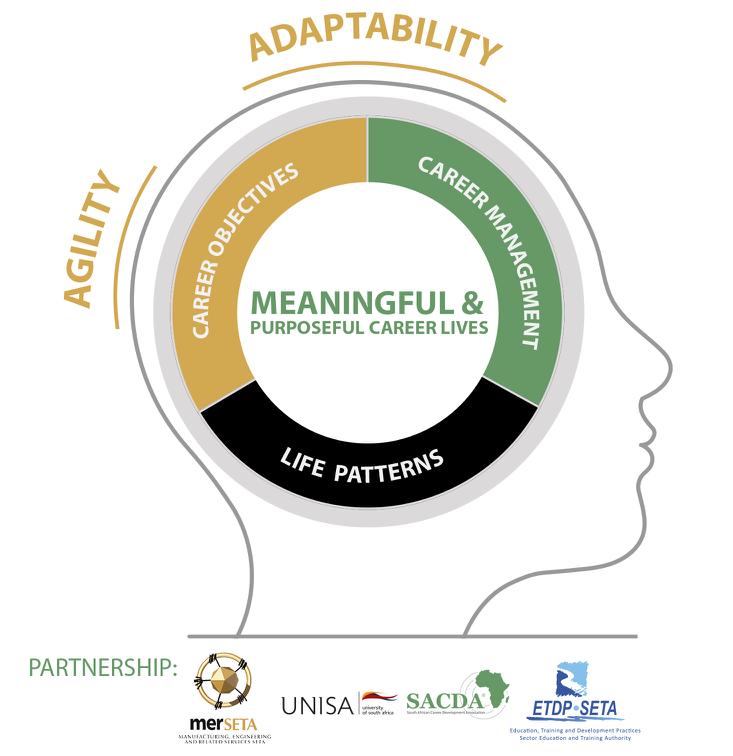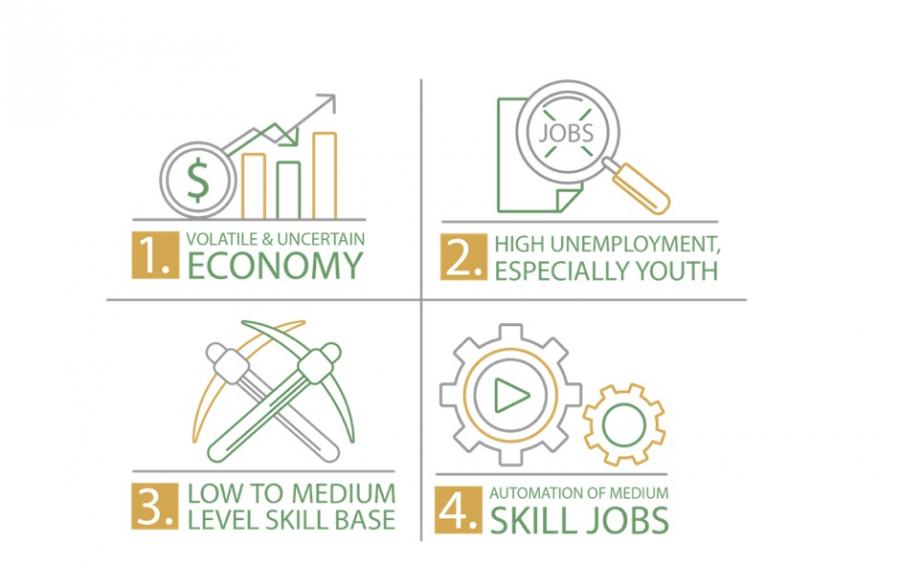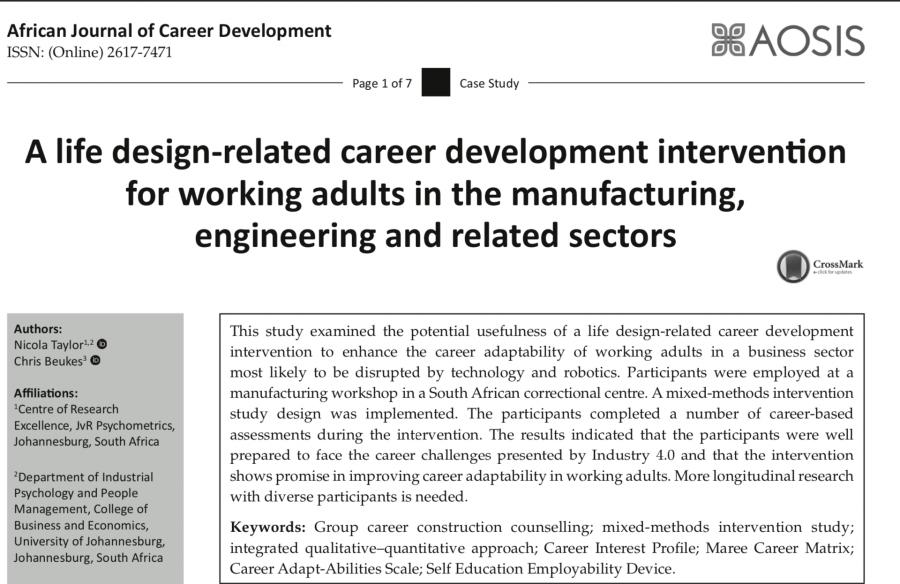 Indigenous Career Management forYouth and Adults
Indigenous Career Management forYouth and Adults
This credential relates to indigenous interventions that empower citizens to identify life patterns, design career objectives and manage their careers in an effort to live meaningful and purposeful career lives.
Indigenous Career Management for Youth and Adults
Indigenous Career Management Interventions for Youth and Adults
This Continuous Professional Development (CPD) credential aims to raise awareness for research that is currently underway, to validate the convenience of South African based interventions that will benefit your clients in becoming more adaptable and agile in managing their careers, to skill, upskill and reskill themselves as the need arises.

It’s no secret that economic sectors are more volatile and unpredictable than ever before. With this volatility comes a sense of uncertainty and insecurity in the job market. In today’s world, the idea of a job for life is a thing of the past. Unemployment is high, especially for the youth and the majority of citizens in developing countries are currently low to medium skilled. This possess a significant challenge when technology is replacing many low to medium skill jobs.

The comfort of job security has been replaced with employability security. Career practitioners are constantly put under pressure to empower and support their clients in securing decent and meaningful work. In other words, there is an amplifying need for people to be able to become more adaptable and agile in expanding their skillset to remain employable in the long term. We can no longer rely on our employers to manage our careers; we need to manage this ourselves. The question is, how can we be empowered to manage a long and purposeful career?

A major project is underway by the Manufacturing, Engineering and Related services Sector Education and Training Authority (merSETA) in collaboration with the University of South Africa (UNISA), South African Career Development Association (SACDA) and the Education, Training and Development Practices Sector Education and Training Authority (ETDP SETA). The project has been termed; ‘indigenous career management interventions for youth and adults’. The purpose of this project is to validate indigenous interventions that will empower citizens to identify life patterns, design career objectives and manage their careers. Thus enabling them to become agile and adaptable in an effort to live meaningful and purposeful career lives.
Homegrown life design solutions
To provide answers, research is currently underway to discover homegrown, life design solutions that could empower people to identify their interests and life patterns to set career objectives in managing their career paths. The first phase of the study focuses on working adults and students entering the manufacturing, engineering and related services sector.
These important career tools can acknowledge the significant life-challenges people face under local circumstances and assist them in managing their careers. Three major instruments are used in the research: the Career Interest Profile (CIP) to assist in identifying life patterns and setting career objectives, the Maree Career Matrix (or MCM) to assist in identifying fields of interest and, lastly, the Self Education Employability Device (or SEED) to assist in identifying career management skills.
1.Career Interest Profile
The first tool trialed in this research is the Career Interest Profile (CIP) which helps individuals identify their; central career–life themes, related interests, issues and concerns and most importantly their “advice from within”. Illustrating how one can turn their issues and concerns into themes of hope that will advance their life projects. This tool is a story-based career questionnaire and not a psychological test. The practitioner’s clients are asked to select five areas of interest that they like and five areas that they dislike from a list of 19 career categories. This makes it simpler to identify potential career options.
2.Maree Career Matrix
The second tool trialed in the research is the Maree Career Matrix (MCM) a psychometric assessment which reflects the individuals’ relevance to 19 job categories by asking them to rate their interests and skill levels in 152 different occupations. These results are then combined and represented on the Career Matrix which guides the participant to potential career options.
3.Self Education Employability Device
The third and final tool trialed in the research is the Self Education Employability Device (SEED) which is a 60-question self-exploration assessment. This step is highly important as it is used to assist practitioner’s clients to explore their career management skills. These answers are grouped to provide feedback on 12 different scales relating to career management such as attitude, service, creativity, barriers, foundation, core, sectors, branding, work, goals, networking and transitions.
In conclusion
The results of the first phase show great promise in improving adaptability in working adults and those who are just entering the sector. These findings also confirm Savickas’ (2019) assertion that life-related interventions renew people’s suppressed dreams, improve their career adaptability and enable them to convert agonizing themes in their lives into hope-filled prospects. The importance of the second phase is to include the measurement of agility and allocate a day to each of the interventions as part of a personal development programme. The scientific article relating to this research can be found at ajcd.africa and below.
Complete the following questions to earn 2 Continuing Professional Development points today. Start by reading and reflecting on the research article and then answer the questions in the CPD section of your dashboard.
Authors
![]() Christopher John Beukes
Christopher John Beukes
![]() Nicola Taylor
Nicola Taylor
![]() SACDA
SACDA

You can earn 2.00 CPD point/s by completing and passing the self-assessment questionnaire for this article.
2.00
